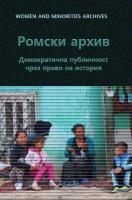
We kindly inform you that, as long as the subject affiliation of our 300.000+ articles is in progress, you might get unsufficient or no results on your third level or second level search. In this case, please broaden your search criteria.


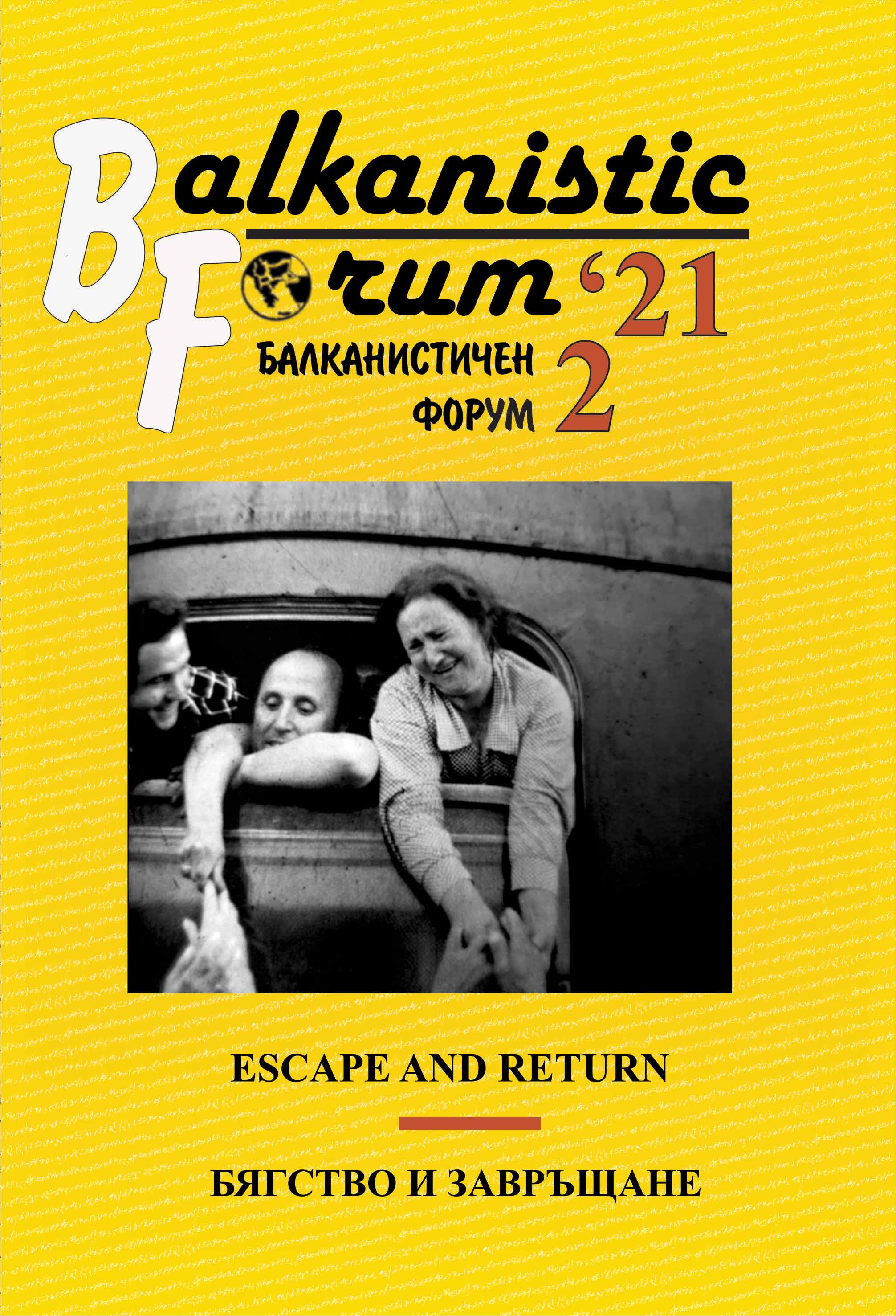
The article elaborates the crossborder experiences and strategies of family divide and unaccompanied childhoods in the context of crossborder migrations and smuggling across Bulgaria-Turkey border between the years of 1990-2001. The authors dig into the longrun impact of smuggling and imposed illegality on the migrant children and the means, manners, strategies and dangers hidden within crossborder cyclical mobility and administrative construction of illegality under the political and economic transitions and turbulence across sending and receiving countries. Left to the forgetfulness of the history unaccompanied child migration experiences between Bulgaria and Turkey contain significant lessons in regard to the role of restrictive and security based visa and migration policies. Our study aims at further investigation and understanding of these experiences via fieldwork containing semistructured interviews with 13 smuggled children and their parents. The article begins with introduction to the political and economic conditions that led to irregularization of child migrations across Bulgaria-Turkey border between 1990-2001. It follows presentation of data collected during the Istanbul University BAP Research Center supported fieldwork and follows elaboration on the memories, experiences and prevailing perceptions of these crossborder experiences by the trafficked children and their parents.The article elaborates the crossborder experiences and strategies of family divide and unaccompanied childhoods in the context of crossborder migrations and smuggling across Bulgaria-Turkey border between the years of 1990-2001. The authors dig into the longrun impact of smuggling and imposed illegality on the migrant children and the means, manners, strategies and dangers hidden within crossborder cyclical mobility and administrative construction of illegality under the political and economic transitions and turbulence across sending and receiving countries. Left to the forgetfulness of the history unaccompanied child migration experiences between Bulgaria and Turkey contain significant lessons in regard to the role of restrictive and security based visa and migration policies. Our study aims at further investigation and under-standing of these experiences via fieldwork containing semi-structured interviews with 13 smuggled children and their parents. The article begins with introduction to the political and economic conditions that led to irregularization of child migrations across Bulgaria-Turkey border between 1990-2001. It follows presentation of data collected during the Istanbul University BAP Research Center supported fieldwork and follows elaboration on the memories, experiences and prevailing perceptions of these crossborder experiences by the trafficked children and their parents.
More...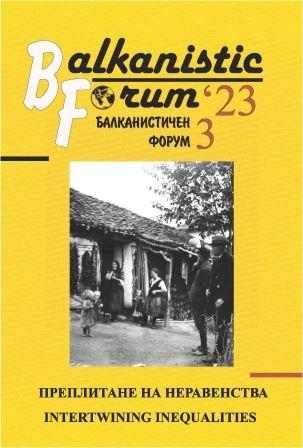
The paper addresses the potential to challenge the dominant narrative of the official memory of the Transition period in Bulgaria through live archives. The specific website, Lost in the Transition: history in photos, is studied as an example of live space for memory reconstruction that could provoke authentic reflection about the recent past and provide a shared space for reflexive dialogue in the contemporary Bulgarian society. This dynamic process can result in a critical attempt to better understand the period and cocreate a liberating and empowering narrative.
More...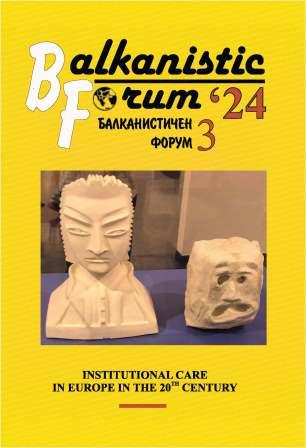

This article deals with aspects of the history of social welfare in the European rural countryside, a topic which has received little attention by historians. It explores child and early youth care, as well as elderly care strategies and practices in Austrian peasant societies during the first decades of the twentieth century, pointing out that official as well as public interest in social welfare prioritized children and early youth over old age, and urban areas over rural ones. The paper argues that in the regions under examination child- and elderly care systems operated “beyond the welfare state” system, as the title goes, while also existing parallel to its early manifestations, and sometimes (as far as laws are concerned) in a relationship with it. Foster care was the primary mechanism for taking care of out-of-wedlock children, who constituted valuable labor force for peasant households. Provision of food and shelter to the elderly (usually former rural servants), by rotating peasant households, remained a fundamental mechanism for taking care of the aged poor well into the twentieth century. In contrast to the welfare provided by the mature twentieth century welfare state, these forms of social welfare were largely associated with social discrimination and feelings of shame, during a period of apparent transition to a new era of social welfare.
More...
This article deals with the possibilities and limits of rooting foster care in interwar Yugoslavia, which was primarily presented through a local project in Savska Banov-ina and reflected in a health film produced by the School of Public Health. The vicissi-tudes of foster care in Yugoslavia are set in the global and Balkan contexts, and in relation to interstate settings for child protection and its initial institutionalization as a strategy for legitimizing the new supra-national institutions of social work and post-1918 nations. The public representation of foster care to the international community and wider audiences in Yugoslavia is explored by examining the reports of Mica Trbo-jević, one of the main proponents of foster care, prepared for the First Balkan Con-gress on Child Protection (1936), and the film Spas male Zorice (1931 by Mladen Širola). Discursive practices aimed at promoting foster care are discussed in compari-son to mainstream visions of families, children and rural communities, disseminated among Yugoslav and international experts.
More...
This article explores the enduring influence of eugenic ideas on British psychiatry and social policy in the aftermath of the Second World War, with a specific focus on the establishment of children reception centres. It provides a detailed case study of the Caldecott Community in Kent, and its involvement in the creation of an experimental reception centre, alongside members of the British Eugenics Society, notably the psy-chiatrists Hilda Lewis and Carlos Blacker. It demonstrates how these psychiatrists attempted to forge a link between childhood behavioural development and adult neu-roses based upon environmental influences, such as adverse home conditions, coupled with assumptions about the hereditary susceptibility of behaviours and abilities linked to the causes of poverty. It explores how eugenic ideas influenced the categorisation of ‘problem families’ during the experiment, the collection of family and social back-ground history on the children sent to the reception centre, and how hereditarian ideas influenced the eventual separation of children from their parents. The article demonstrates how eugenics, via a pathologisation of childhood and family life, was able to integrate into the policy debates on child welfare within early post-war Brit-ain.
More...
In the Bulgarian context of child healthcare and socialist health policy, this study focuses on the Children’s Sanatorium in Momin Prohod, which was dedicated to the rehabilitation of children with long-term disabilities resulting from poliomyelitis epi-demics. Established in the early 1950s, it was the only specialized healthcare facility of its kind in Bulgaria, combining both therapeutic-rehabilitative and educational work. The sanatorium gained international recognition and even treated patients from abroad, including from countries on the other side of the ‘Iron Curtain’. Institutional-ly-focused in nature, this research is situated within the dominant medical model of the time. Chronologically, it spans the 1950s and 1960s, and is based on official doc-uments from state archives.
More...
Caring for children in need is a global issue and cause. Every country seeks effective models to implement and adapt in its social environment. An example of such an effort in Bulgaria is the creation and implementation of Family Children's Homes. This was a social experiment aimed at placing children in need within a family environment. The first of these homes was established in 1987 in Pernik, followed by additional homes in Sofia and Pleven. Inspired by foreign practices, the experiment began with the preparation and placement of children in "Family Children's Homes". Before in-troducing this alternative to institutional care in Bulgaria, the traditions of family orphanages in Czechoslovakia and Poland were studied. The concept of the experi-ment is closely resembling modern social service and protective measures such as fos-ter care. The paper examines the emergence of family orphanages in the twentieth century as an alternative form of institutional care. It focuses on the experiment’s development, set against the background of the general concept and organization of institutional care in Bulgaria. The research is grounded in fieldwork in the city of Pernik and the diary book "Hungry for Love" by Tsvetana Doneva, the director of the "First Family Children's Home" in Bulgaria.
More...
This article analyses the history of residential care for babies and toddlers in the two German states between the 1950s and the 1980s. A comparative perspective is em-ployed to delineate similarities and differences in their developmental trajectories. Initially, parallel trends could be observed: in the first period, infant homes for babies and toddlers exhibited significant growth in East and West Germany, and the scien-tific discourse manifested conformity in both. Substantial disparities emerged only in the 1960s. In capitalist West Germany, these institutions were rapidly dismantled due to alarming findings from scientific research. In contrast, within socialist East Germa-ny, the infant homes for babies and toddlers gradually vanished from public discourse while simultaneously enduring as an institution for residential care until the collapse of the German Wall in 1989.
More...
This article seeks to trace the 'hierarchical' interconnections of corruption across three levels ‒ institution, society, and the state ‒ through an examination of institu-tions for mentally disabled children and the neuropsychiatric hospitals in the People's Republic of Bulgaria. The article focuses on several micro-historical cases between 1940s and 1970s, where we find clear direct and indirect evidence of financial and material abuses, even though inspecting authorities did not make any formal accusa-tions in the courts in any of these cases. Seeing the institutions as part of the so-called "personal network society”, whilst taking into account the objective realities of the era (e.g. personnel shortages, a "shortage economy"), the article theorizes a "paternal-istic form" of corruption, which is essential to all hierarchical levels. The analysis draws on documents from care homes and neuropsychiatric hospitals located in state archives in Sofia and other regions, as well as the archives of the Ministry of People’s Health and Social Welfare.
More...
This paper will discuss the problem of the institutionalization of care for the elderly during the period of late socialism in Bulgaria. I will examine a specific case – that of the Elderly People’s Home in the village of Pelishat (Pleven Province), whose development follows the trajectory of displacement to spatial and social peripheries, typical of similar institutions. For this purpose, I will analyze a set of archival documents dating from the second half of the 1960s until the end of the 1980s. The analysis will take into account the socio-historical context of the practical and ideological role of (institutionalized) social care, as well as the government’s attempts to deal with factors such as the (negative) demographic trends in the country at that time and the deepening discrepancies between the official image of universal modernization of Bulgarian society and the economics of shortage.The main focus of the text however, falls on the dynamic interplay of care and medicalization, and the ideological construction of the everyday life space of the residents who find themselves in a situation of shared accommodation (in dormitory), medical interventions and the auxiliary e conomy of the home. These aspects of life are usually normalized through categories such as “medical services”, “culturtherapy”, “personal hygiene”, “living conditions”, “labor activity” and others. The analysis of the ideological framing of institutional life can help trace the implicit and explicit discourses and set of disciplining techniques aimed at the facility residents and staff, as well as study the traces of successful adoption of or failure to follow the Party’s official line.
More...
Review of: Ивана Јаношевић, Непокретно културно наслеђе Палежа и Обреновца: речи, слике и прилике; Библиотека „Влада Акентијевић”, Обреновац 2022; 148 стр
More...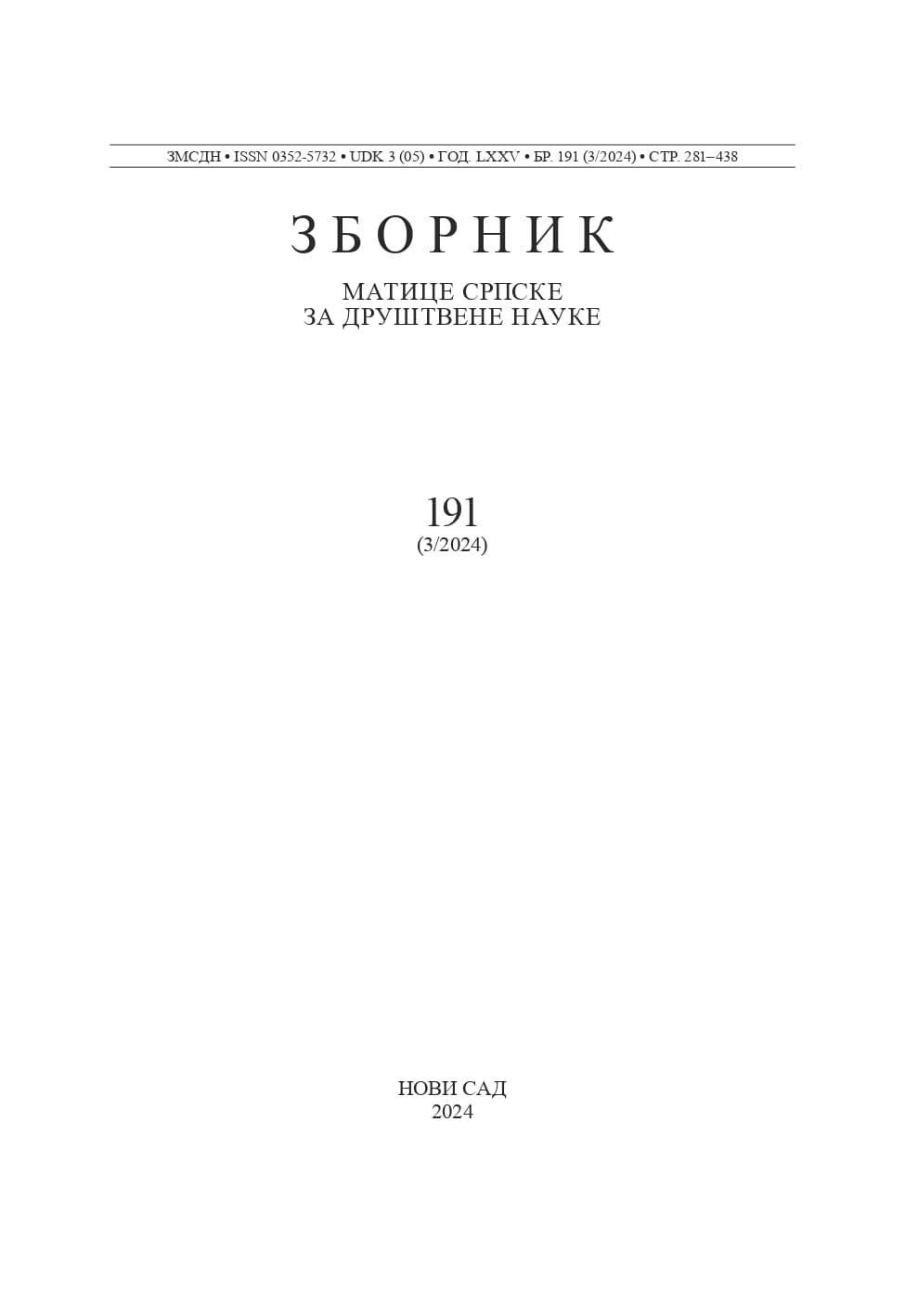
The subject of the paper is post-Yugoslav countercultural identity engineering as an ideological construct of left-liberal Euro-Atlantic totalitarianism. The author studies the subject through the analysis of a model of countercultural action directed against the basic identifiers of Serbian cultural identity – Svetosavlje as the Othodox Cristians philosophy of life derived from the teaching of Saint Sava, whose spiritual creation is a centuries-old value system, and the Cyrillic script of the Serbian language through which the Serbian people communicate the Saint Sava worldview. The aim of the research is to understand and explain the way of thinking and action of neoliberal Euro-Atlantic totalitarianism in the area of the former Yugoslavia based on theoretical sources, analysis of empirical data, media texts, internet presentations and weblogs. The results of the historical-comparative analysis of Yugoslav and post-Yugoslav identity engineering show that a key role in the process is played by the hybrid model “double of the state” which assumes the role of a cultural hegemon. Model operates on the principle of “divide and rule” by antagonizing existing political and cultural identities to impose a set of beliefs about gender identity with devastating consequences for society as a whole. For expansion of left-liberal Euro-Atlantic totalitarianism to the poscommunist Europe after the breakup of Yugoslavia, the “double of the state” model was necessary in order to remove all the subversive contents of cultural identity. This especially refers to the key identifiers of the Serbian cultural identity, which the comunist – ateist ideology of Yugoslavia perceived as a threat due to the alleged “Greater Serbian hegemony and nationalism”, and has already pushed it out of public life to a significant extent. Thus, the post -Yugoslav left-liberal ideology found its natural ally in neoliberal Euro-Atlantic countercultural transculturalism.
More...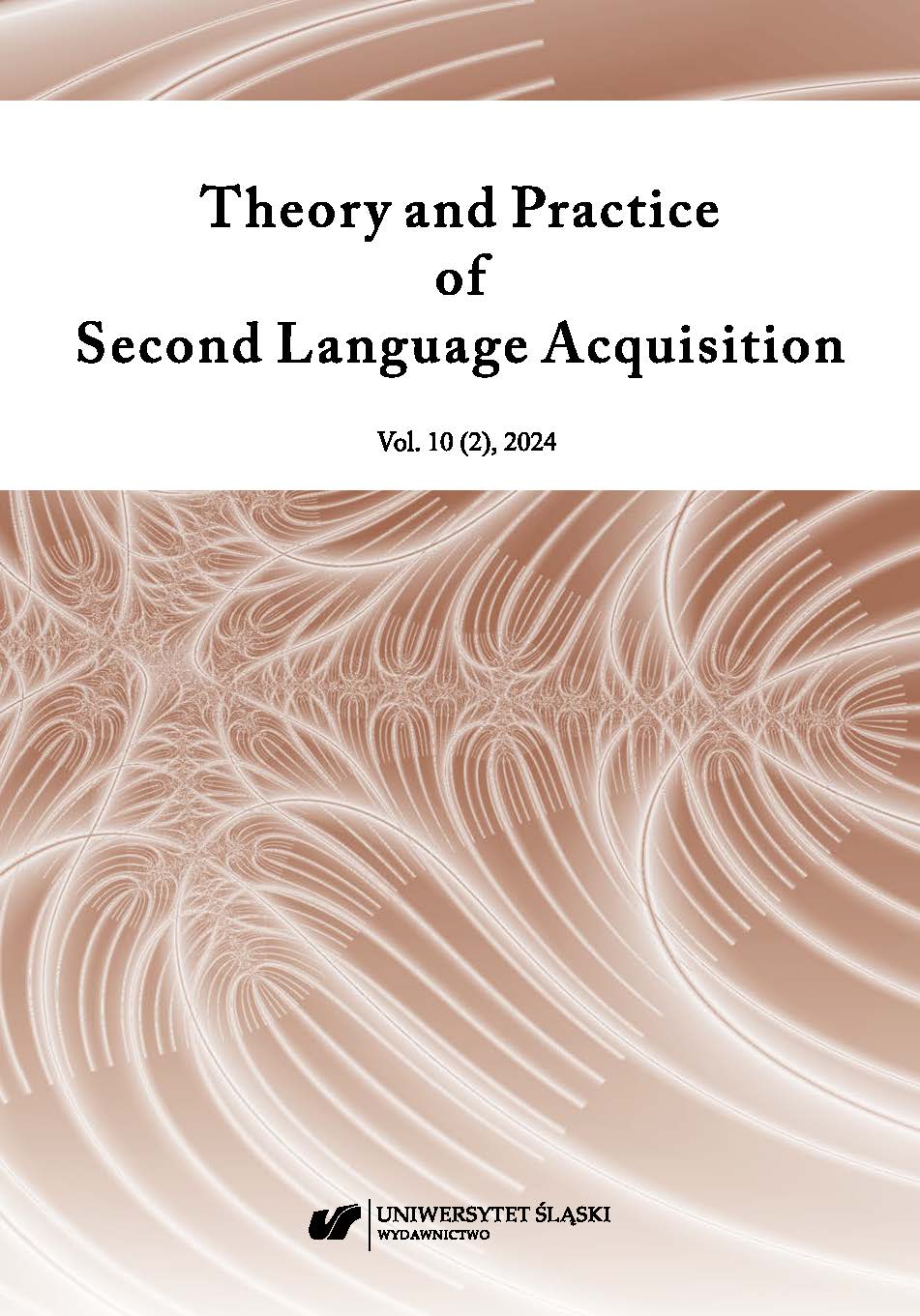
The article aims to investigate the cultural component of selected LSP textbooks in Business English, German, French and Spanish from the point of view of their potential for developing intercultural competence, which is indispensable in business communication (Stegu, 2017). The study analyses the cultural content of twenty textbooks as well as activities aimed at developing and practising intercultural skills. As the results show, they include different cultural information and focus on developing different skills. Moreover, they mostly present such information implicitly rather than explicitly, for example, model business letters show how business correspondence is written in the target language culture, without making explicit statements on politeness in that culture. It is thus the teacher’s role to select the textbooks, draw the learners’ attention to the cultural elements, and to supplement the books with other materials.
More...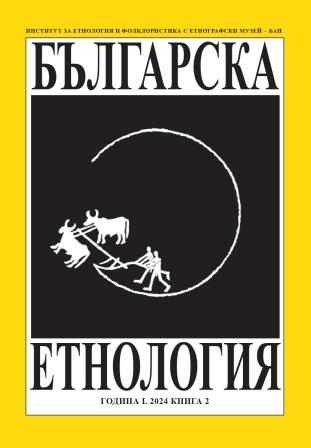
In previous academic publications, I have already turned my attention to the expedition carried out by the famous Bulgarian folklorist Rayna Katsarova in Dobrudzha in the summer of 1944. This endeavor of hers was also the subject of deeper interest in my text from the last issue of the journal “Bulgarian Ethnology“, the continuation of which is the present article. The specific reason for the research is the fact that some time after finding the file with the reportfrom R. Katsarova’s fieldwork trip in the archive of IEFSEM-BAS, I was able to familiarize myself with her recordings, made in several settlements in North-Eastern Bulgaria. These transcripts are stored in today’s Musical the Bulgarian Academy of Sciences. The specific reason for the research is the fact that sometime after finding the file with the report from R. Katsarova’s fieldwork trip in the archive of IEFSEM-BAS, I was able to familiarize myself endeavour of hers was also the subject of a deeper interest in my text from the last issue of One of the highlights of R. Katsarova’s expedition to Dobrudzha were the Bulgarians who moved from the Tavria region in 1943 (then in the Ukrainian SSR), bringing with them a specific language, traditions and folklore. Our great folklorist did not know that after a few months these people would not remain in their ancestral homeland and that, unlike the Jews in Bulgaria, the state would not be able to save them. About 2,000 Tavrian Bulgarians were deported back to the USSR, a part of them were killed along the way, others were repressed and thrown into the prisons of Central Asia. There is no way that the Tavrians themselves knew that their meetings with an academic like R. Katsarova were a unique chance to pass on to the next generations, through her, pieces of their cultural memory, of their customs and musical folklore, which will remain as a document for the development of their ethno-cultural traditions and identity and in the conditions of the Second World War. In the present second part of the study, the archival materials of R. Katsarova from1944 will be presented in a more detailed manner, both in terms of their content and type, and in relation to earlier and later records of other researchers among the Bulgarians from the historical and cultural regions of Tavria and Bessarabia.
More...
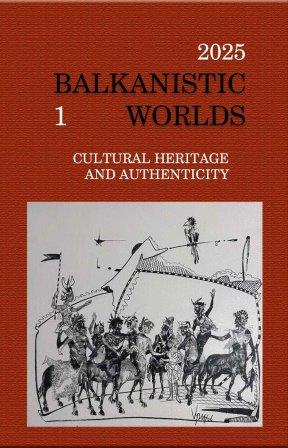
The research aims to establish the role of language in the branding of national, transnational and regional identities in the works of art selected for the Venice Biennale 2024. The analysis shows that the notion of language as a unifying concept of national identity is greatly shaken. The use of text in works of art shows the clash and destruction of traditional values and identities. In most national pavilions and individual participants, the theme is the return to or push away from traditional identities. The texts in the works of art are monolingual, discussing the problems of colonialization, women's and transgender identity, and multilingual, thematizing the increasing feeling of alienation in a globalized world based on gender, religious, etc. differences. The use of intentional language variants or speech imitations suggests the person's inability to talk about the suffering and violence, as well as to connect with others.
More...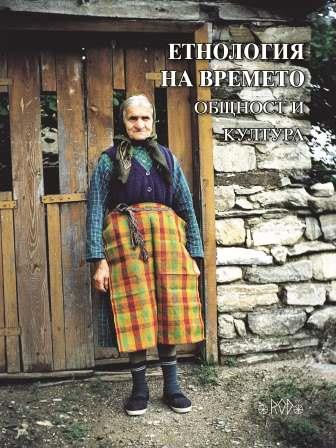
The article provides an overview of different cognitive models of the concept of TIME as a part of our linguistic picture of the world. In our consciousness these models coexist and complement each other, and in everyday life in different situations we switch from one model to another.
More...